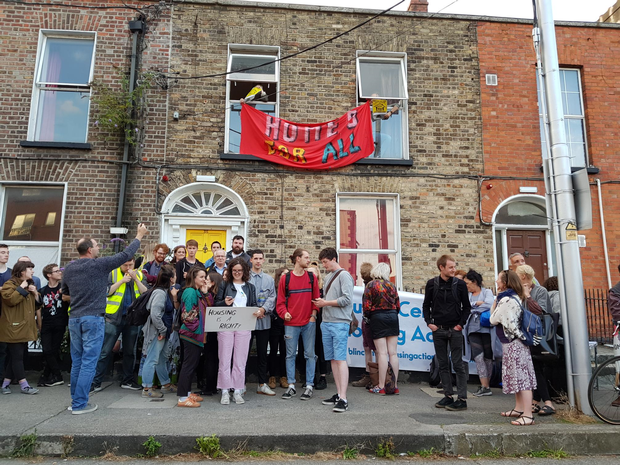Almost 100 years ago, the Democratic Programme was introduced to the first Dáil. The Labour Party, under Tom Johnson, saw to it that it reaffirmed “that all right to private property must be subordinated to the public right and welfare”. The document was radical for its time, providing a socialist directive for the century that followed that first, illegal Dáil. Despite the socialist, republican vision that Larkin and Connolly had for Ireland, the 20th century was defined by partition and a drift towards free market liberalism. The ideas espoused by Labour’s founders have not been shared by the majority of the electorate since the Lockout and the Rising. That said, popularity has never been a foundational pillar of the Labour movement. Indeed, some of our most successful Labour politicians lost their seats for pursuing unpopular policies: Michael D. Higgins, Jim Kemmy, Jim Larkin, Frank Cluskey. Mary Robinson couldn’t even win a seat in Dáil Éireann in the first place. Equally, some of the proudest moments this party has seen have been triggered by anger, protest and civil disobedience. The 1913 Lockout, the circulation of information pertaining to abortion, legalising contraception, decriminalising homosexuality, the Civil Rights Movement in the six counties. Since the inception of the movement, our most treasured moments have a common theme: they were triggered by a decision based on ethics and justice, not the law or political expediency.
To stay relevant and do right by Ireland, Labour must maintain and encourage its radical and riskier tendencies. A broad church is not a broad church if it is populated solely by moderates. Ireland needs a credible and sizeable left wing movement that is accessible and visible. Labour is afflicted with a chronic case of introspection. Conversations speculating over whether abstaining from the last coalition would have allowed Labour to form a left-wing government are commonplace, though not particularly useful after the fact – for what it’s worth I reckon it may have. What Labour must do now, however, is focus on providing an alternative to Civil War party governments, not acting as a crutch for them. It must focus on developing a platform to legislate for socialist policies, unbridled by the insidious neoliberalism of Fine Gael and the amoral ideological vacuum of Fianna Fáil. Languishing in the polls between three and six percent, we must use all avenues available to us to promote our political approach. Protest is one of these avenues – and a legitimate and potent one at that.
On the 50th anniversary of the political tidal wave of 1968, young people have been a defining factor of two of the most successful grassroots campaigns that this country has ever seen in the Repeal and anti-homelessness movements. Young people are a force to be reckoned with, both on the streets and in the ballot box. “Generation Austerity” is angry, and we mean business. Many Labour activists and Labour Youth activists in particular have been tirelessly organising in their communities and protesting the injustices that ravage them. It is time that the rest of the party embraced this approach as one that complements, as opposed to undermines work at a legislative level.
This year, Labour is redrafting a new democratic programme for the next hundred years. Its goal is to cater to the needs of the 21st century, looking at climate change, globalisation, and the gig economy, while keeping its fidelity to the spirit of the original. The ambitious project is calling for contributions from young people to talk about the future we hope to carve for ourselves. However, realistically, to find out where our priorities lie takes little more than to look outside and see where the protest is. We are passionate about the provision of social and affordable housing, a constitutional right to it, an end to the incarceration of asylum seekers, reproductive justice, an end to war, sensible drug policy, free at the point of access education and healthcare, an end to precarity, as well as decent pay and conditions for all workers.
If Labour is serious about forming or being part of a truly left-wing and lasting government in the short to medium term, it must navigate political arenas where we are no longer the majority, where hostilities remain from the coalition years. Our origins are in protest and, as I see it, so is our future. The strength of the trade union and labour movements has always been the ability to oscillate between protest and collaboration. The Labour Party that I want to campaign with is one that can sensibly legislate for a better Ireland, but also one that can take radical steps to achieve this through other means in realms immune to the rule of law. Both processes are crucial to democracy, socialism, and social democracy.
The rebuild and continued internal campaign for Labour policies continues and while old comrades are returning to join after prolonged leaves of absence, much work remains to be done. A new generation of tenacious young activists is rising through the ranks, demanding a campaigning Labour Party that can do better, and organising in their local communities. They know that the great victories of the Labour movement have come from struggle, protest, and civil disobedience. They are the next generation of councillors, TDs, and senators who will build a new republic beyond Leo’s republic of pseudo-opportunity. They will do it by recognising who we are and behaving as such. We are the political wing of the trade union movement – the shop steward of your community. We are the party of decency and solidarity. We will ask and campaign for better, but if the powers that be won’t gift better to us, Labour should stand and fight with those who will claim it anyway.






